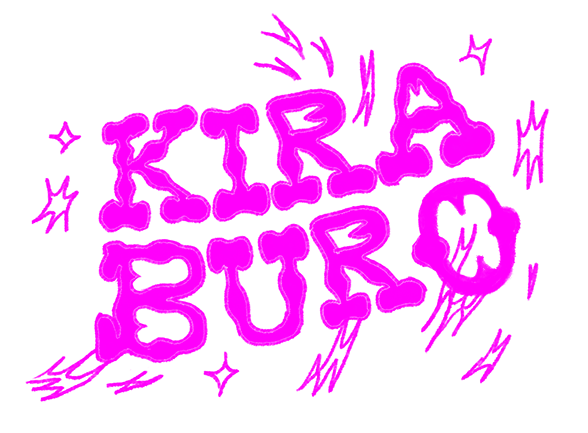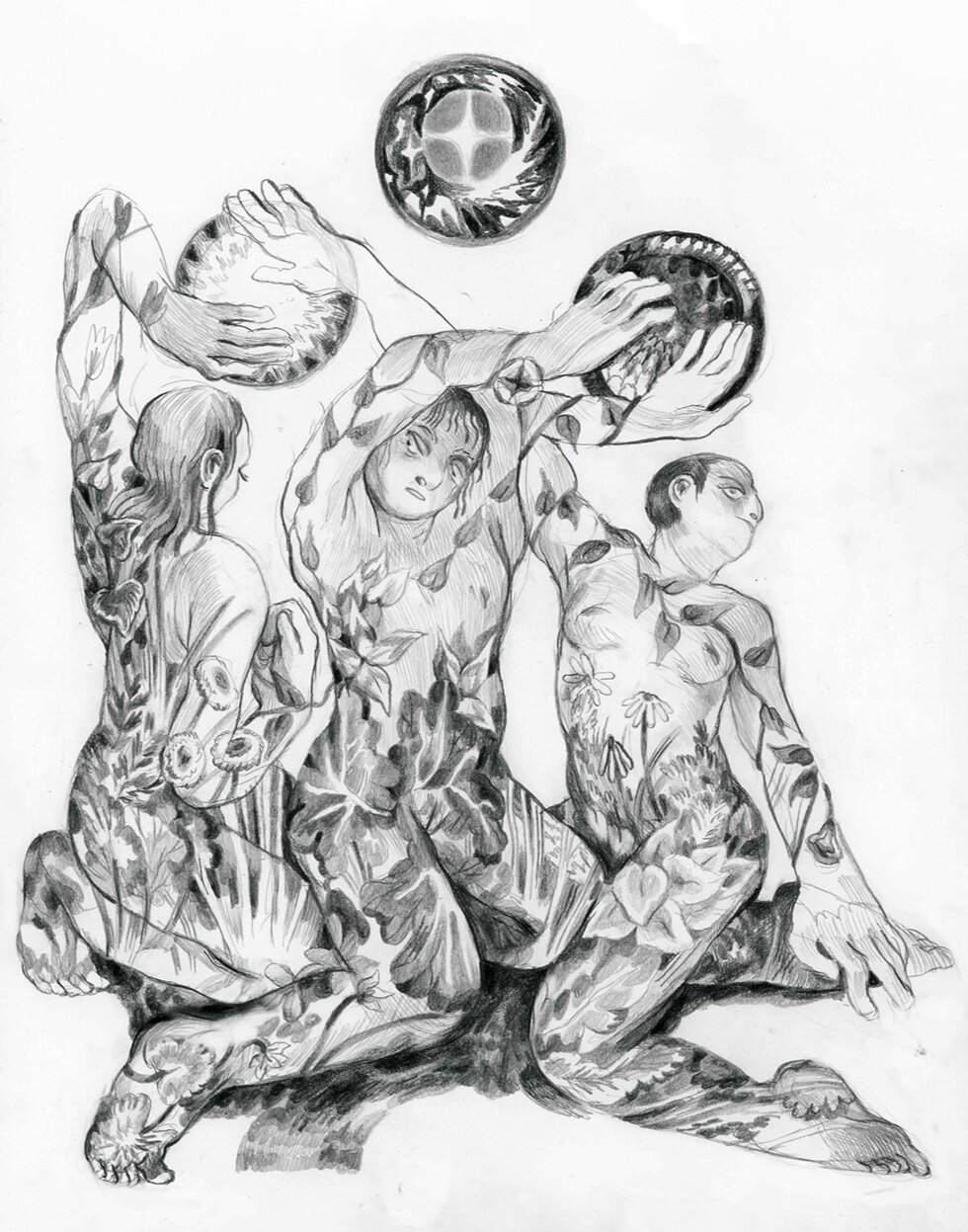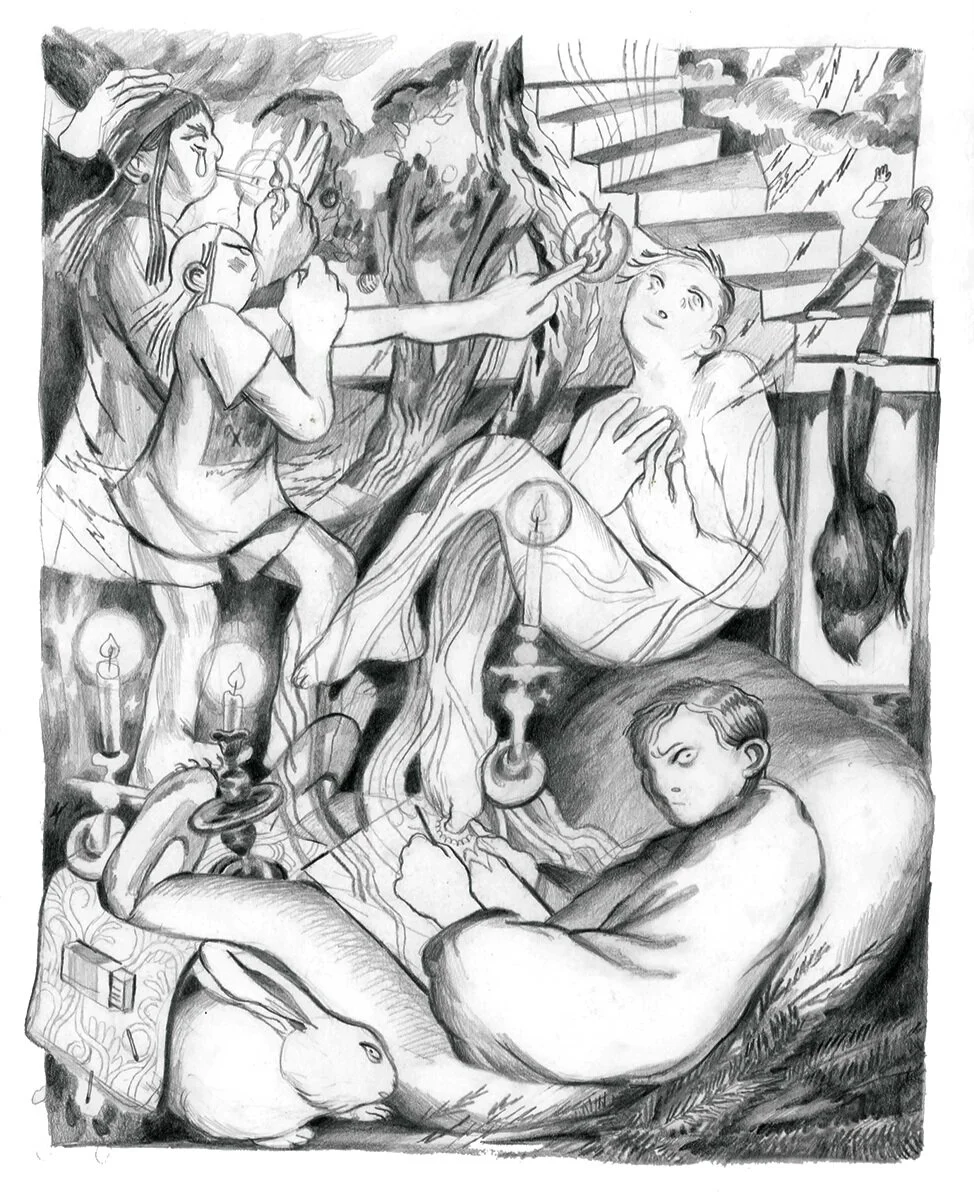ISSUE 02 / JAN 2021
I walked into the ocean today – I climbed in with my feet, I worked my heels into the sand. It was a cold so severe I forgot who I was for a moment, a pain that leached all the way into my jaw. This is something I have noticed in my yoga practice, too, that pain and tenderness in the body pulls one into the present moment entirely like almost nothing else, wipes the mind clean.
I walked along the beach, one foot placed carefully in front of the other, blinded by the cold. It was a sweet and silly sight, I am sure, walking along the beach in January wrapped in layers and a scarf, blank and icy feet being lapped up by the waves. I created some footsteps that the ocean ate up, and that made me feel more relieved than anything: watching the sand be smoothed anew, flush with water, arranged gently into a new shape. I thank that playful water spirit for reminding me how relieving and excruciating it is for nothing to last as it is. I walked home in bare feet, the pavement feeling like nothing, and in my shower, I washed that same story's sand from my skin.
What is the most courageous thing you can do for yourself when you feel small and hurt?
(Brene Brown, The Gifts of Imperfection)
We, the Garden
Tara Brach, in one of her many offerings on the subject, encourages an investigation of one's own tendency towards fear and shame as a story we all share. She suggests that our swiftness to condemn both ourselves and others for our very human imperfections and capacity for mistake-making has to do with an attachment to original sin and its implications: that we are, in our entirety, defined by an inherent badness and wrongness that we must all spend lifetimes competing with and paying for.
What she offers as an alternative perspective is that we were not cast out of the Garden of Eden, instead that we are the garden itself and incapable of being separated from it – we are inherently good, capable, and worthy, and these qualities of ours are not negated by missteps and our shared capacity for wrongdoing and violence. As we begin to apply this perspective to our relationships with ourselves and with others, what is revealed? How does love demonstrate its own vast capacity when we practice seeing the best versions of those we hold dear, including ourselves?
It is, of course, an exhausting (and often redundant or complexity-negating) endeavor to attempt to essentialize anything, let alone the human condition as something most defined by goodness or badness or otherwise, but I have found this conscious shift in perspective very helpful. In my own experience, the patterns of my thoughts assume a posture much as the body does as a result of repetitive motion or strain -- and, as a dear friend of mine has often reminded me, the healthiest thing for expanding out of these postures is variety. I have found the work of Byron Katie an interesting format for delving into other kinds of conscious inversions.
Becoming reacquainted with an entire lifetime of Selves as you pass through spaces you've occupied at many different points and chapters
And what IS the self, anyways, if not a conglomeration of all that exists outside of it, all that is being absorbed by its many remarkable receptors, brain breath eyeball and so on? I am porous, after all, I am impressionable – what am I if not the result of the combined efforts of my gut bacteria, the exhalations of trees, the tasty bao that my friend and I shared on my bed last week (for the ongoing lack of a dinner table), the care of my family, and the many pliable surfaces off of which I may ricochet and twirl in new directions, having been reshaped by our collision? Or does the self exist only in one's thoughts – their rhythms, their directions, their interpretive capacity? No, see, my words are often not my "own", they are those I have absorbed and reorganized – so is the self simply an underlying organizational principle that selects what to keep and what to toss out with the rest of one's compost at the end of the week? But what informs those decisions – where do values come from? And what does ownership even meaningfully point to in this constellation, this acknowledgement of irrefutable exchange and learning and dependence?
Maybe the best answer is a gleeful yelp as one runs face-first into the January ocean, thanking the body for its receptive capacities, thanking the world for providing us with all kinds of miracles to sense, thanking millions of years' worth of ancestors in the form of amoebas and many-legged water-bound dumpy and sophisticated and brilliant creatures that are responsible for the here and the now and the you that you are and the you that you are becoming. The myth of independence grows fainter and fainter still in the light of these kinds of reflections: it is an impossibility to stand alone. And how fun it is, really, to be together in all these ways!
At times, this news is familiar. "In every work of genius we recognize our own rejected thoughts: they come back to us with a certain alienated majesty," wrote Emerson, providing a memorable phrase for the grand, surprising pleasure we feel when a work of art returns or restates our own thoughts and feelings to us, however obliquely. At other times, however, the news arrives more alien than majestic, generating the perpetual undergraduate grievance, "I just can't relate." It behooves us, I think, to develop an openness to this latter feeling as well as to the former. If we're lucky, this openness may eventually grow into a hunger." (Maggie Nelson, The Art of Cruelty)
Differences between us are an opportunity for curiosity and learning if we have the humility to ask questions.
Echoing the words of grief expert Alica Forneret, it is a potent shift in focus to move from “will anyone ever truly understand me?” (the answer to which is often no, not really: we may resonate, but a wholly encompassing understanding is difficult to expect) – to “will the people in my life show up for me?” (the answer to which is yes, they will, to the extent that they are able). This is an important adjustment that decentralizes the value found in alikeness (and an associated expectation of intuitive understanding of another and their needs), and refocuses on the essential vulnerability of asking for support, and asking loved ones about what they need.
I was talking with a friend over a bed of arranged spruce branches early this month, thinking about healing as an act of decomposition, a necessary part of any and every life cycle (of which we all experience many), rather than as something that insinuates a brokenness, an otherness. It can be difficult to allow yourself the non-linearity of growth.
Here is an ode to the unfinished thought, the beginning that leapt out of the end of another thing that had been left to turn the earth into something new
An ode to the love we have that evades our definitions of success and acceptability, our narratives of progress and achievement: an ode to the love that slinks carefully beyond our line of sight, follows us through the forest, reminds us of all that otherness with its gentle calls, reassures us that we are not all there is
An ode to the frustration born of instability
An ode to all that goes unrecognized in our labour and our love for one another, an ode to the selbstverstaendlich (certain, natural) ways our affection and our dreams colour our words and gestures, an ode to all the things you have done that do not feel as though they ever came back to you (they did, they will)
An ode to those who have passed from our life but continue to visit us in dreams
To investigate:
I would really recommend the book The Smell of Rain on Dust by Martin Prechtel. I would like to have written more on grief and dying but don't have my own words for that yet. This is a book full of transformative love.
An interview with Eileen Crist about the environmental crises we face beyond the narrow lens of climate change
A video by Alica Forneret discussing the onset of the new year in the context of grief and grieving
FOR THOSE in "Vancouver":
If you are an artist currently looking for a studio, consider looking into SPACE: a flexible, well-resourced communal workspace that I've benefited from immensely since joining at around this time last year. We currently have room to take on new members, and offer a variety of monthly plans to choose from that suit all kinds of different needs.
If you are interested in attending affordable and COVID-safe life drawing classes, consider investigating those held at Slice of Life every Tuesday from 6-8PM -- I will be the hosting them this season!
If you are someone with access to a vehicle and are interested in doing food deliveries for PACE Society, I would encourage you to reach out to them and offer your time. (They will be sending some folks out on foot, too -- join me!)
The voices of starlings like a handful of jewels spilling onto glass – peals of laughter from the eagles – the squeaky wheel of a nearby hummingbird.
May this coming month grant you many clear and intuitive yesses and nos, the chance to let down your guard with another and be pleasantly surprised, the feeling of the sun on your palms and your cheeks.
Please let me know what you are reading, or what is moving through you these days. If you feel like sharing, you know where to reach me!
Yours,










